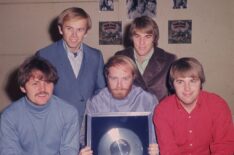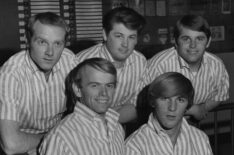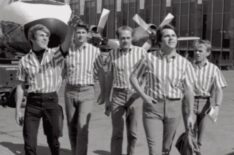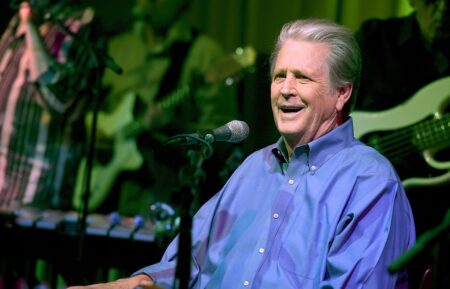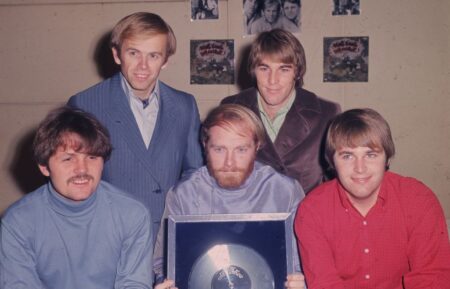Mike Love

Singer • Songwriter
Birth Name: Michael Edward Love
Birth Date: March 15, 1941
Age: 84 years old
Birth Place: Baldwin Hills, California
Bands: The Beach Boys
Born Michael Edward Love on March 15, 1941, he was the son of Milton Love and his wife, Emily Wilson, whose brother, Murry Wilson, was father to the three Wilson brothers - Brian, Dennis and Carl - who would form the backbone of the Beach Boys.
As a high schooler, Love was an ardent sports player, but also deeply enamored of the black vocal groups of the late 1950s, and would provide the bass lines in several impromptu groups at Hawthorne High School. Family get-togethers at the Wilson home were also filled with music, where Love forged a relationship with cousin Brian Wilson based on their mutual love for multi-part harmonies.
Wilson began to toy with the idea of forming a rock group. While conducting sessions with his brothers in their bedroom, he also included Love on vocals and school friend, Al Jardine, on guitar and harmony. Love provided the embryonic band with its initial moniker, the Pendletones - inspired by the Pendleton shirts favored by South Bay surfers - and encouraged his cousin to begin writing original material.
After Dennis Wilson suggested that they write a song about surfing, Wilson and Love cobbled together a rudimentary tribute to the sport called "Surfin'," which, in 1961, became the newly christened Beach Boys' first single.
Both Wilson and Love shared duties as the Beach Boys' lead singer - Wilson's gorgeous, multi-octave voice was best suited to the ballads, while Love's deeper and distinctly nasal tones had a rawness and an insouciance that were the perfect instrument for the band's rock and upbeat pop numbers, including "Surfin' USA," "Dance, Dance, Dance," "Little Deuce Coupe" and countless others. Love also had a confident stage presence - something that the painfully shy Brian and Carl Wilson lacked, though brother Dennis had his own degree of magnetism - and on occasion played rudimentary saxophone.
But Love's greatest contribution to the Beach Boys was also his least celebrated: he was co-author of countless songs, including some of its most enduring hits. Love's key talent as a songwriter was his ability to hone in on a lyrical hook or a title - he provided the memorable chorus ("round round get around/I get around") for "I Get Around," a No. 1 single in 1965, and later anchored the soaring, triumphant "Good Vibrations" around his simple yet effective vocal bridge ("I'm picking up good vibrations/She's giving me the excitations).
On occasion, Love could also collaborate on softer material like the elegant "Warmth of the Sun" (1964), which he and Wilson penned in the early morning hours after the assassination of John F. Kennedy.
Love's songwriting credits, as well as the notion that he had a greater hand in crafting the band's early sounds, would be an issue of great contention as critical and fan focus shifted from the Beach Boys as a whole to Wilson as the key architect of the group with the release of their critically acclaimed Pet Sounds album in 1966.
According to Love, when Wilson was allegedly coerced by his father to turn over the rights to his publishing company, Sea of Tunes, his (Love's) name was excluded from a vast number of songs in its catalog, which not only robbed him of millions of dollars in royalties, but also relegated his status solely to singer and not an equal creative force within the group. This oversight created a growing resentment between Love and his cousin that would fester over the next four decades and result in highly charged clashes that would have lasting effects on the band.
The conflict between cousins came to a head over Smile, the band's follow-up to Pet Sounds in 1966. Love had been a vocal opponent of the latter record, which he regarded as "ego music," though Wilson's decision to collaborate with Tony Asher on its lyrics may have also contributed to Love's antipathy. Wilson's lyrics for Smile, which he co-wrote with eclectic musician Van Dyke Parks, proved even more obtuse for Love, who openly challenged their content in recording sessions.
The hostility between Wilson and Love eventually broke the band into two camps, with the three Wilson brothers united in support of the album and Love, Jardine and new member Bruce Johnston in opposition. In an attempt to ease tensions, Parks left the project, which soon collapsed into disarray, fueled in part by Brian Wilson's growing drug dependency and mental health issues. Smile became a legend within the rock community, a fabled promise of musical brilliance that never came to pass. And with its disappearance, so too went the prominence of the Beach Boys.
As Wilson retreated from the studio to self-imposed exile in his own home, the remaining Beach Boys attempted to gain control of their rapidly plummeting stock. Carl and Dennis Wilson began to emerge as talented songwriters, though even their best efforts could not pull the band's album sales out of a precipitous spiral. Love continued to contribute to key songs, most notably 1968's "Do It Again," which was inspired by a nostalgic surfing expedition with an old friend. He also offset his prickly reputation by his enthusiastic participation in Transcendental Meditation, which he had practiced with the Maharishi Mahesh Yogi during a famed 1967 visit to India with the Beatles and Donovan.
But as the 1960s faded into the 1970s, the Beach Boys were unable to pull their careers as recording artists out of its tailspin. Each successive album was pronounced as both an artistic and commercial failures, and by the midpoint of the decade, their records weren't even breaking the Billboard 100 album charts. But the Beach Boys remained an extraordinarily popular live act, with concerts drawing thousands of fans, both young and old, to hear their vast catalog of former hits. Since Love acted as the band's voice onstage, he was eventually regarded as their leader off-stage as well.
In the mid-1970s, Love attempted to establish himself as an entity outside of the Beach Boys, first with another group called Celebration, which scored a Top 30 hit with "Almost Summer," which he co-wrote with Brian Wilson and Al Jardine. Later, he recorded First Love and Country Love, a pair of solo efforts for the Beach Boys' label, Brother Records, but neither saw an actual release. His last solo effort to date was Looking Back with Love, a collection of cover songs that found neither critical nor fan approval.
As the years passed, Love eventually became the sole original member of the Beach Boys in the touring band. Dennis Wilson, with whom Love had a fractious relationship in the early 1980s due to his marriage to the singer's illegitimate daughter, Shawn Marie Love, died from drowning in 1983, while Carl Wilson succumbed to brain and lung cancer in 1998. His passing prompted Al Jardine to sever ties with the Beach Boys, leaving Love and Bruce Johnston, who had replaced Brian Wilson in the touring band during the 1960s before becoming a full-time member, as the only "true" Beach Boys in the group.
In 1988, Love co-wrote the song "Kokomo," a breezy, tropical-themed pop song for the movie "Cocktail" (1988) with John Philips of the Mamas and Papas, singer Scott McKenzie ("San Francisco (Be Sure to Wear Flowers in Your Hair)") and producer Terry Melcher. To the surprise of the industry, the song rocketed to the top of the pop charts, and provided the Beach Boys with their first No. 1 hit since 1966's "Good Vibrations" - the longest period between chart-topping hits for any band in music history. More importantly, it was recorded and produced without any participation from Brian Wilson, who was slowly extricating himself from a long period of abuse at the hands of fraudulent psychiatrist Dr. Eugene Landy. Wilson's absence from the song was a point of pride for Love, who in interviews underscored how he, and not the "genius" Wilson had broken a two-decade losing streak for the Beach Boys. Love made additional headlines during the band's induction into the Rock and Roll Hall of Fame in 1988 when he issued a rambling, invective-filled speech that lambasted other inductees, including members of the Beatles and Rolling Stones.
The Beach Boys' tenure at the top was short-lived, and by 1990, they had returned to the nostalgia act that they had been for the past two decades. Love, however, remained in the news for a series of lawsuits leveled at Brian Wilson and other members of the Beach Boys for unpaid royalties and abuse of the band's name. After Wilson won a $25 million settlement in the early '90s in an attempt to regain the rights to the Sea of Tunes catalog, Love launched his own lawsuit against Wilson, claiming that his name had been removed from dozens of songwriting credits, which cost him several million dollars in lost royalties. The suit was settled in an amicable fashion - Wilson agreed with Love's complaint, citing his father's negligence as the reason for the omission - and Love received $13 million of Wilson's settlement.
However, subsequent lawsuits were not as well mannered. In 2003, Love sued Al Jardine for improper use of the Beach Boys' name in promoting live performances he gave with Brian Wilson's daughters, Wendy and Carnie Wilson, as well as former members of the Beach Boys' touring group. The case was settled out of court in 2008. Love fired off another lawsuit at Brian Wilson in 2004 over alleged improper use of the Beach Boys' name and his own image as part of a promotional campaign by the U.K.'s Daily Mail for the release of the completed Smile in 2004. Love's request for several million dollars in damages was dismissed on the grounds that it lacked merit in 2007, due in part to Love's own admission that, like Wilson, he had re-recorded countless Beach Boys songs for various promotional CDs in previous years. Despite decades of acrimony, Love announced in 2011 that Wilson would be rejoining the Beach Boys in 2012 to celebrate the group's 50th anniversary. He later added that he and Jardine had collaborated with Wilson on several recording sessions at their old label, Capitol Records. However, in late 2011, Wilson issued a statement that he would not be joining Love or the existing Beach Boys for any live dates or recorded projects.
By Paul Gaita
Credits
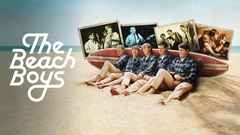
The Beach BoysStream
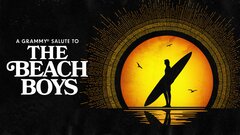
A Grammy Salute to the Beach Boys

Mystic Vibrosis: A Guide to Living Indubiously

Rooted in Peace

GMA3: What You Need to Know

GMA3: What You Need to Know

Daily Blast Live

The Beach Boys: Making Pet SoundsStream

The Hollywood Walk of Fame Honors

Christopher Cross & Friends

Celebrity PageStream

The Beach Boys Live In Concert

The Beach Boys Live In Concert

Home & Family

Home & Family

CBS This Morning

Overheard With Evan Smith

Access Hollywood Live
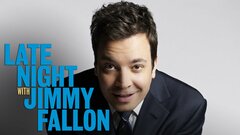
Late Night With Jimmy Fallon

AXS TV Concerts

The Beach Boys: Good Vibrations Tour
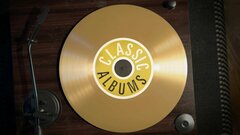
Classic AlbumsStream

Home ImprovementStream
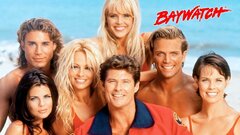
BaywatchStream

Baywatch

Full HouseStream

Full HouseStream
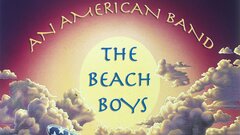
The Beach Boys: An American BandStream

Good Morning America


